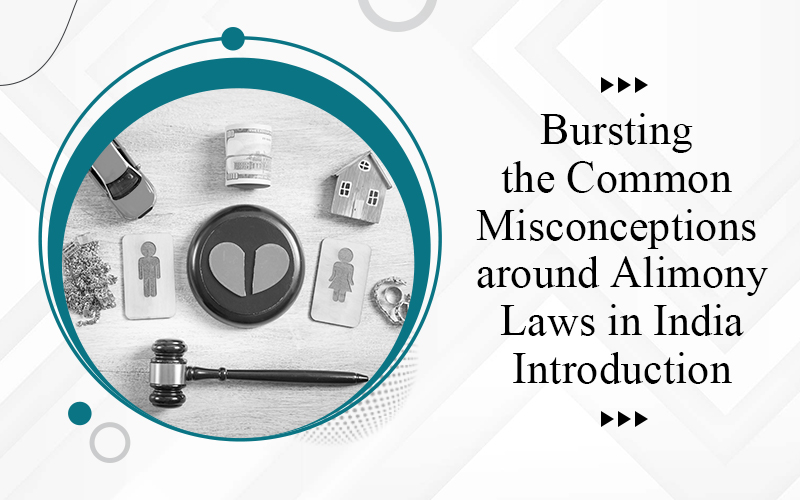Introduction- Rule Of Law in India
The Rule of Law is a fundamental principle in India’s legal system. It refers to the concept that everyone, regardless of their position or status, is subject to the law and that the law should be applied fairly and equally to all individuals.
Key aspects of Rule of law
- Constitutional Supremacy: India has a written constitution that serves as the supreme law of the land. The Constitution lays down the framework of governance, fundamental rights, and the separation of powers among the executive, legislative, and judicial branches. All laws and actions of the government must conform to the provisions of the Constitution.
- Equality before the Law: The Rule of Law in India emphasizes equality before the law. It means that all individuals are equal in the eyes of the law, and there should be no discrimination on the grounds of caste, religion, gender, or other protected characteristics. The legal system is expected to treat everyone impartially and without favoritism.
- Judicial Independence: An independent judiciary plays a crucial role in upholding the Rule of Law. The Indian judiciary is separate from the executive and legislative branches and has the power of judicial review. Judges are expected to be impartial, free from influence or pressure, and interpret and apply the law without any bias.
- Access to Justice: The Rule of Law requires that citizens have access to a fair and efficient justice system. It includes the right to legal representation, a fair trial, timely adjudication of cases, and the availability of legal remedies. Legal aid programs have been established to ensure that even those who cannot afford legal representation can access justice.
- Accountability and Transparency: The Rule of Law emphasizes the importance of accountability and transparency in governance. Public officials, including those in positions of power, are expected to act in accordance with the law and be accountable for their actions. Transparency in decision-making processes, government functioning, and access to information are crucial elements of the Rule of Law.
- Legality and Predictability: Laws in India should be clear, accessible, and foreseeable. Individuals should be able to understand the legal requirements and consequences of their actions. Retroactive laws or arbitrary exercise of power are inconsistent with the Rule of Law.
Challenges to implementation
While the Rule of Law is a fundamental principle in India, its effective implementation and adherence can vary in practice. Challenges such as delays in the legal system, corruption, and uneven access to justice remain areas of concern that need ongoing attention and reform efforts.
Exceptions to rule of law:
While the rule of law is a fundamental principle in a democratic society, there may be certain exceptional circumstances where deviations from strict adherence to the rule of law are deemed necessary. Some exceptions to the rule of law include:
- State of Emergency: In situations of national emergency, such as war, natural disasters, or internal unrest, governments may temporarily suspend certain legal rights and procedures in order to maintain public order and security. While such measures are expected to be temporary and proportional, they can restrict individual freedoms and limit access to justice.
- National Security: Governments may justify departures from the rule of law in the interest of national security. This can involve surveillance, detention, or restrictions on civil liberties, with the aim of preventing terrorist activities or protecting the integrity of the state. Balancing national security concerns with the rule of law can be challenging, and safeguards are necessary to prevent abuse of power.
- Extraordinary Circumstances: In certain exceptional circumstances, such as a public health crisis or a significant threat to public safety, governments may take measures that could temporarily override or modify certain legal rights and procedures. For example, during a pandemic, governments may impose restrictions on movement, assembly, or business operations in the interest of public health.
- Transitional Justice: In post-conflict or transitional societies, there might be a need to address past human rights abuses and establish mechanisms for truth, justice, and reconciliation. Transitional justice processes, such as truth commissions or amnesty arrangements, may involve deviating from strict legal procedures to achieve broader societal goals, such as promoting peace and stability
Landmark cases on Rule of law in India:
- Kesavananda Bharati v. State of Kerala (1973): This landmark case established the basic structure doctrine, which holds that there are certain essential features of the Constitution that cannot be amended by the Parliament. The case upheld the supremacy of the Constitution and the rule of law by placing limitations on the amending power of the Parliament.
- Maneka Gandhi v. Union of India (1978): In this case, the Supreme Court of India emphasized the importance of due process and held that the right to personal liberty (Article 21 of the Constitution) includes various fundamental rights. The ruling expanded the scope of Article 21 and affirmed the principle of fairness, reasonableness, and non-arbitrariness in law.
- Indira Gandhi v. Raj Narain (1975): This case dealt with the election dispute of then Prime Minister Indira Gandhi. The Supreme Court’s ruling established that no individual is above the law and upheld the principle of equality before the law. It reinforced the importance of fair and free elections and the accountability of those in power.
- Vishaka v. State of Rajasthan (1997): This case addressed the issue of sexual harassment at the workplace and laid down guidelines to prevent and address such harassment. The judgment highlighted the significance of the rule of law in protecting the fundamental rights and dignity of individuals, especially women, in the workplace.
- R. Bommai v. Union of India (1994): This case dealt with the misuse of Article 356 of the Constitution, which deals with the imposition of President’s rule in states. The Supreme Court’s ruling asserted the importance of the rule of law and held that the power to impose President’s rule should be exercised in accordance with constitutional principles and not for political considerations.




